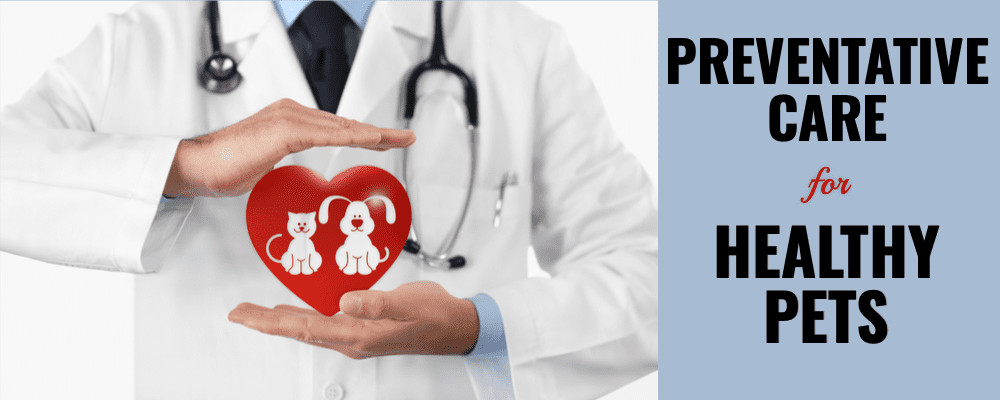Why is preventive care so important?
Pre•ven•tive
· Designed to keep something undesirable such as illness, harm, or accidents from occurring.
· A medicine or other treatment designed to stop disease or ill health from occurring.
The importance of an annual physical examination is the same for your pet as it is for you — maybe more important. Dogs and cats age 4 to 7 times faster than human beings, so for a cat or dog to have an annual physical exam is like us going to see the doctor once every 4 to 7 years. A lot can happen in that period of time.
During each regular comprehensive preventive care exam we evaluate 16 body systems. This is critical to help us identify problems that would be difficult for most pet owners to detect, such as heart murmurs, abdominal masses and dental problems. The evaluation of the different body systems may include laboratory testing and other diagnostic workups. Some of the most common tests that may be performed are checking a stool sample for parasites, examining the urine, drawing the blood for chemistry evaluation, and cell counts.
Early diagnosis of disease will help your pet remain healthy. You may notice every little thing your pet does, but did you know that dogs and cats have evolved to hide illness? Showing weakness makes an animal – and their pack – vulnerable, so our best friends do everything they can to keep a stiff upper lip. Your veterinarian can find problems your pet hides. This is why establishing a relationship with your veterinarian is important: it allows them to pick up subtle changes during your pet’s annual checkups.
If you notice any of the following in your pet, please ask your veterinarian for advice:
- Abnormal behavior, sudden aggression or lethargy
- Change in appetite that lasts a few days (this includes an increase or decrease in appetite)
- Abnormal discharge from nose, eyes, or other body openings
- Excessive head shaking, scratching or licking
- Foul breath or excessive tartar and deposits on teeth
- Abnormal lumps, limping, or difficulty in getting up or laying down
Sometimes we feel like a hero when we cure a disease, but preventing disease is equally heroic. That is why we also recommend proper vaccinations and parasite control for your pet. It is much more effective – and economical – to prevent disease than it is to treat disease.
A healthy pet is a happy pet. Have we seen yours lately? If not, give us a call today so we can give your best friend a through checkup.
